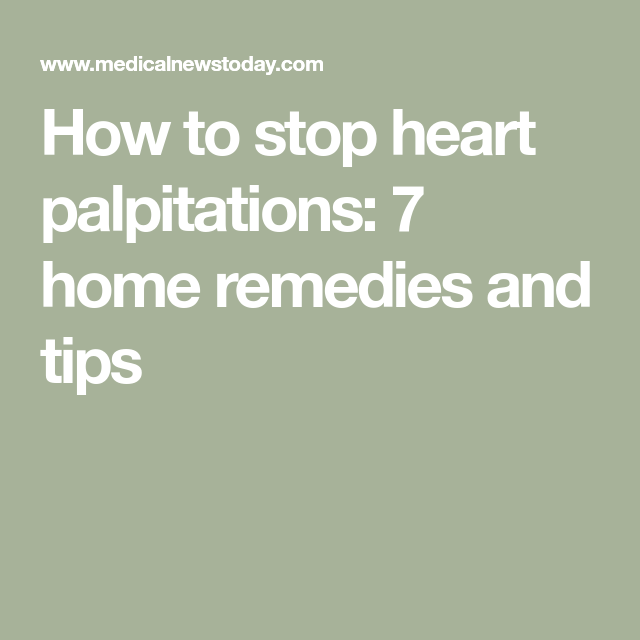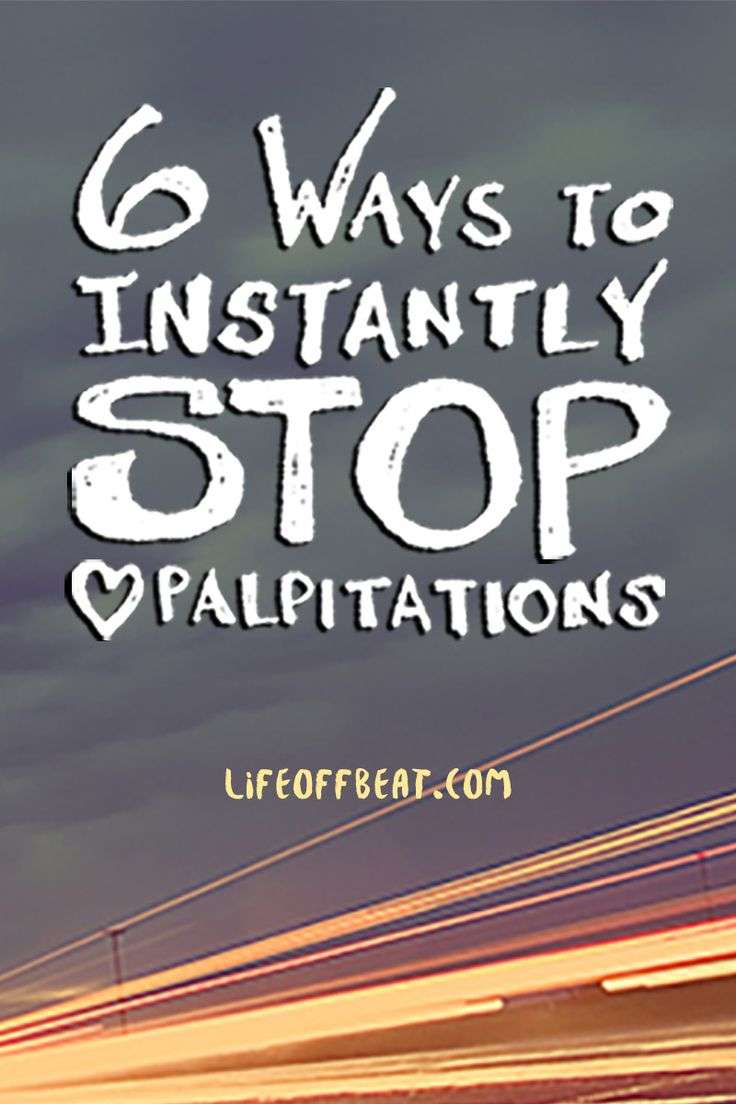The Feeling Of Heart Palpitations Vary From Person To Person But Often Make Your Heart Feel Like It Is:
- Beating in irregular patterns
- Skipping heartbeats
The most common way to describe a heart palpitation is the feeling you get after sprinting up a long flight of stairs. When you reach the top, you are breathing heavy, you can feel your heart pounding, and you might hear the beating in your ears. This sensation usually passes in a few seconds, but it might be a cause for concern if the heart palpations dont go away on their own.
Heart palpitations can occur when you are active or when you are resting. They can be connected to a specific activity or trigger, or the palpitations might happen for no identified reason.
Most people only have palpitations every once in a while. But some patients experience palpitations throughout the day, resulting in discomfort that can feel as strong as a heart attack.
When To See A Doctor
You should see a doctor if heart palpitations are followed by nausea, chest pains, dizziness, shortness of breath, upper back pain, arm or jaw pain, or an intense sensation of pressure on the chest. This indicates a more serious condition that may require medical attention.
If your normal heart palpitations begin to change in frequency, its another indicator that you should visit your doctor.
What Risks Are Associated With Palpitations
The health risks from palpitations very much depend on their cause, so if you are concerned about your palpitations, an ECG would be recommended, as well as a continuous heart monitor. An ECG provides an electrical overview of the heart, while the heart monitor would allow your doctor to correlate your symptoms to whats going on inside your heart this would help them to try and ascertain the cause of your palpitations and therefore what steps should be taken going forward to alleviate your symptoms.
Don’t Miss: Does Acid Reflux Cause Heart Palpitations
How Are Heart Palpitations Treated
Treatment of heart palpitations depends on what is causing them. Usually, there will be no treatment as the palpitations arent serious.
If you have a heart condition like an arrhythmia or atrial fibrillation, you may be sent to a specialist for treatment with medications, surgery or an implantable device.
How To Reduce Heart Palpitations At Home

For the most part, palpitations caused by non-heart related triggers can be treated with simple home remedies.
For example, if you only feel your heart race when youre anxious or stressed, relaxation techniques like meditation and deep breathing could be the key to reducing these palpitations.
Likewise, a thumping heart caused by stimulant use can be calmed by reducing your intake of tobacco products and caffeine. If youre taking any medication, tell your doctor about the palpitations youre experiencing to find out if your medication could be causing them.
Hydration and diet play a big role, too. Being dehydrated or having low levels of potassium can also trigger heart palpitations. If you have low blood sugar, eating too many carbohydrate-rich foods and processed sugars can increase your likelihood of experiencing palpitations.
Read Also: How Much Blood Does An Adult Heart Pump Every Day
All Fats Arent Created Equal
Most of us have been trained to believe that all fats are bad. However, some sources of fat are actually good for you and may reduce your risk for heart disease.
- Unsaturated fats are the good kind of fat, and theyre found in foods like avocados, nuts like almonds and walnuts, olive and canola oils, fish, and more. Enjoy in moderation.
- Then there are saturated fats which should be limited to occasional eating; and trans fats, which should be avoided when possible as they increase both your cholesterol level and heart disease risk. Theyre found in processed foods like fries, cakes and cookies, microwave popcorn, and frozen pizza.
When Anxiety And Heart Palpitations Coincide
Your heart races or feels like its flip-flopping inside your chest, so youre understandably concerned. While these can be the signs of an arrhythmia or other heart problem, anxiety is one of the more common causes for these sensations.
When it comes to figuring out whether anxiety or something more serious is causing your heart palpitations, you need to understand the relationship between palpitations and anxiety.;
At Heart Rhythm Associates, Dr. Van H. De Bruyn and our team believe that you should exercise caution when it comes to your heart health. Education is key.;
In the following, we explore why anxiety can lead to heart palpitations and if you should be concerned.
Recommended Reading: Acid Reflux Cause Palpitations
When To Seek Help
Talk with your doctor if you notice your heart rate is faster than normal. Doctors cannot always pinpoint the cause of heart palpitations. They will need to rule out heart rhythm disorders like tachycardia and other medical conditions like hyperthyroidism.
There is typically little risk of complications with heart palpitations unless theyre caused by an underlying heart condition. If theyre caused by a heart condition, you may experience:
- fainting if your heart beats too quickly and causes your blood pressure to drop
- cardiac arrest if your palpitations are caused by arrhythmias and your heart isnt beating efficiently
- stroke if your palpitations are caused by atrial fibrillation
- heart failure if your heart isnt pumping well for a long period of time
Speak with your doctor if you have palpitations with any other symptoms or if you have other concerns about your health.
How Can You Stop Heart Palpitations
The most common causes of heart palpitations are extra beats, or ectopics. Extra beats arise from any part of the heart, and are invariably benign. The vast majority of people have them, but do not necessarily experience symptoms.
Lifestyle factors can contribute to feeling symptomatic namely due to alcohol or caffeine consumption, lack of sleep or stress. As such, the best way to help prevent palpitations is to address these factors, for example by reducing your alcohol or caffeine consumption, ensuring you get at least 7 hours of sleep every night and trying to manage your stress levels during the day.
Don’t Miss: Can Too Much Vitamin D Cause Heart Palpitations
How Accurate Are Electrocardiograms
An electrocardiogram is a representation of the electrical activity of the heart in multiple views. It records about 12 seconds and patients with palpitations may or may not have an abnormality on their EKG during that time. That is why many physicians use ambulatory EKGs or Holter monitors to try to make a diagnosis.
The other benefit of the standard EKG is that it may reveal evidence of other things that may be wrong with the heart such as an old heart attack or other electrical abnormalities that may provide important clues to an underlying diagnosis that the palpitations represent. So an electrocardiogram is a valuable part of a heart evaluation, but is not particularly sensitive for detecting heart rhythm abnormalities.
Drink A Herbal Tea Made From Hawthorn
The hawthorn plant is known for its calming effect and its ability to treat superficial heart conditions by regulating blood pressure and heart rate.
Its use in the treatment of cardiac disorders is linked to its action against nervousness.
If you feel palpitations due to stress, depression, or anxiety attack, take a hawthorn herbal tea to slow down.
Here is how to use it:
- put 1 to 2 teaspoons of dry hawthorn flowers in a cup of hot water,
- leave the infusion to stand for a few minutes, then filter the tea obtained, then consume your drink,
- repeat the operation 2 to 3 times a day during 6 weeks of treatment.
If, after treatment, the palpitations reappear, do not hesitate to consult your doctor-cardiologist for cardiac examinations.
Also Check: Does Acid Reflux Cause Heart Palpitations
What To Expect From Your Doctor
Your doctor is likely to ask you questions, such as:
- Have your symptoms been continuous or occasional?
- Do your palpitations start and stop suddenly?
- Does it seem like your palpitations have a pattern, such as occurring the same time every day or during a certain activity?
- What, if anything, seems to improve your symptoms?
- What, if anything, appears to worsen your symptoms?
- Are you having other symptoms such as shortness of breath, chest pain, fainting, or dizziness when you have palpitations?
- Have you ever had heart rhythm problems before, such as atrial fibrillation?
Arrhythmias As Symptoms Of Serious Disorders

Arrhythmia can be a symptom of more serious underlying disorders, including:
- cardiovascular disease
- heart valve or heart muscle abnormalities
- congenital heart disease
- an overactive thyroid gland
- problems with the electrical circuitry of the heart, such as blocked signals or signals taking an abnormal path through the heart
- significant electrolyte abnormalities
- irritable heart cells sending extra electrical signals.
Read Also: Does Acid Reflux Cause Heart Palpitations
How Do Medical Professionals Diagnose Palpitations
Palpitations may be difficult to diagnose, since often the symptoms are intermittent and may not be present when the patient presents for care.
As with most medical conditions, the key to making the diagnosis lies in the history and physical examination. The health care professional may ask questions to understand the sensation felt by the patient:
- Are the palpitations an isolated extra or skipped beat or are there runs that can last for minutes or hours? What makes them come on? What makes them go away?
- What other symptoms might be present, including shortness of breath, chest pain, sweating, nausea and vomiting, lightheadedness, and syncope?
- Past medical history is important, including a history of heart or lung disease and prescribed medications.
- Knowing whether other medications or drugs are being used will be helpful. These include caffeine, over-the-counter medications, herbal medications, alcohol, and illegal drugs that may affect the heart .
Physical examination will often concentrate on the heart and lungs, but may also focus on other organ systems if it is appropriate.
Blood tests may be helpful to look for underlying medical conditions that may cause palpitations. These may include a complete blood count or hemogram looking for anemia , electrolytes, kidney, and thyroid function.
Further Testing For Heart Palpitations
In most cases, we see patients in the emergency department whose palpitations have either gone away or arent critical by the time they arrive. Like a car problem that clears up when you visit the mechanic, this can be frustrating for patients.
We reassure them that just because we dont see an abnormal heart rhythm now doesnt mean that they didnt have one before. We check for any signs of damage or injury, and we may monitor patients for a few hours at the emergency department to see if they have another episode of palpitions, but there may not be enough time to capture an abnormal heart rhythm that comes and goes.
We often refer patients who have had heart palpitations to a cardiologist in the MedStar Heart & Vascular Institute. For example, we might diagnose an abnormal heart rhythm in the emergency department, but its not something that needs emergency treatment. Or we might not see evidence of an abnormal heart rhythm, but we think the patient could benefit from additional monitoring to rule out possible heart problems.
A normal heartbeat is easy to take for granted. So when we feel heart palpitations, it can be very scary. But with quick medical attention and advanced monitoring, your heart can beat steadily for a long time to come.
To learn more about heart palpitations, please visit .
Recommended Reading: How To Calculate Resting Heart Rate
Key Points About Palpitations
|
See your doctor or go to the nearest emergency department if you or someone you care for has palpitations and any of the following symptoms: |
|
- recreational drugs such as cocaine, heroin, amphetamines, ecstasy and cannabis
- not getting enough sleep
- strenuous physical activity or exercise.
If you think lifestyle factors are causing your palpitations, you can take steps to reduce their effect on you. This may involve stopping smoking, drinking less caffeine and alcohol, avoiding recreational drugs or choosing a less intense form of exercise.
Are Pvcs That I Can Feel More Significant Than Those I Can’t
There is no prognostic difference between the PVCs that are felt by the patient and those that are not. Obviously the symptomatic PVCs are of more concern to the patient because they can be annoying and distracting. Beyond that, the PVCs are all the same, prognostically. In most patients who are otherwise healthy, PVCs on a Holter are of little prognostic value regardless of whether they’re experienced or not.
Recommended Reading: Does Acid Reflux Cause Heart Palpitations
What’s Normal And Not
The good news: While uncomfortable at first, heart palpitations are mostly benign. As far as frequency goes, heart flutters can occur frequently or infrequently. Generally, the frequency of heart palpitations does not dictate if the palpitations are serious or benign. The symptoms that accompany the palpitations usually signal whether itfs a medical emergency or not, he adds.
You should seek immediate medical attention if you have any of the following symptoms:
- Dizziness
- Shortness of breath
- Fainting
Palpitations can be a sign of a heart problem. This is more likely in men or people with heart disease. If your palpitations are frequent, worsening, or lasting more than five minutes, speak with your doctor about your symptoms.
Living With Heart Palpitations
If you can understand what is causing your palpitations, you will likely be able to manage them. You will be able to avoid known triggers, like diet pills, caffeine, and cold/cough medicines.
Palpitations that are caused by anxiety or stress are sometimes harder to control. The anxiety can cause the palpitations, and the palpitations can create anxiety. These often make up a seemingly endless cycle. In these cases, your doctor may prescribe a medication to help ease anxiety.
Recommended Reading: What Branch Of Medicine Deals With Heart Disease
Anxiety Disorders: Know The Different Types And Symptoms
The past few months have been challenging. As a result, many of us, including children, parents, and seniors, are experiencing feelings of anxiety and uncertainty.
Occasional anxiety over recent events, on top of additional personal stress, is normal. However, the feelings of anxiety caused by an anxiety disorder, do not go away and can worsen over time. These feelings of anxiety can interfere with your daily life and may be difficult to control.
Knowing the difference between normal fears or worries and anxiety disorders is important and can help you recognize them and seek treatment.
Could Heart Palpitations Accompanied By Shortness Of Breath Be Serious

Heart palpitations can certainly be associated with shortness of breath, that is, the two symptoms together without a serious condition being present. That usually indicates that the irregularity of the heart rhythm is significant and may signal the need for a more comprehensive evaluation.
In general, the more serious the symptoms, such as lightheadedness, loss of consciousness, chest pain, shortness of breath, the more seriously one needs to take the problem.
If a patient has known heart disease such as a previous myocardial infarction, congestive heart failure , hypertrophic cardiomyopathy , and others, the symptoms of palpitations will require a thorough evaluation.
Don’t Miss: What To Do When Someone Has A Heart Attack
Medical History Provides Clues
Your medical history may offer hints as to whether youâre experiencing a panic attack or afib. Often panic attacks are precipitated by some anxiety or depression or another psychiatric difficulty. Also, whether youâve had a panic attack in the past could be a clue. Dr. Sobel said the presence of one panic attack increases the likelihood of another. Likewise, he said, a family history of cardiac disease and arrhythmias may point in a different direction.
Women may have atypical symptoms of a heart attack or other heart condition, such as a burning sensation in the upper abdomen, an upset stomach, or sweating. Doctors donât always consider a heart attack or heart arrhythmia when women come to the ER with those symptoms, said Michelle B. Riba, MD, a professor and associate chair for integrated medical and psychiatric services at the University of Michigan.
Try These Tips To Stop Heart Palpitations:
- Splash cold water on your face, which stimulates a nerve that manages your heart rate.
- Breathe deeply to help your body relax.
- Vigorously move to stop palpitations through exercise.
- Reduce anxiety in whatever way works best for your unique needs.
- Close your eyes, then use your hands to gently press on your eyeballs.
- Try the Valsalva maneuver: pinch your nostrils closed, then try to blow air through the nose with the nostrils sealed.
- Drink water if the palpitations are associated with dehydration.
- Restore electrolyte balance by eating foods high in calcium, potassium, magnesium, and sodium.
Don’t Miss: Is 190 Heart Rate Bad
Understanding When Heart Palpitations Become Problematic
Songwriters have used phrases like skipped a beat, racing, pounding, and fluttering to describe the effect that love has on the heart. These are the same words doctors could use to describe potentially worrisome heart palpitations.
Palpitations are usually harmless. Exercise, stress, medication, or even caffeine can provoke palpitations. If they happen frequently or last for longer periods, it could be an indicator of a more serious heart condition like an irregular heartbeat, an overactive thyroid, or heart disease.
